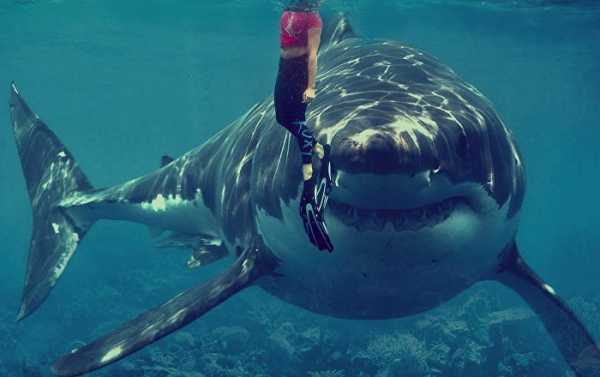
While a collision with an asteroid led to the extinction of the dinosaurs, a new hypothesis suggests that radiation from an ancient star explosion might have wiped out most prehistoric ocean life, including the famous Megalodon shark.
The theory, which was presented in a recent publication of Astrobiology, suggests that the supernova which occurred 2,6 million years ago could have led to the extinction of many marine megafauna species on Earth, including Megalodon, Vice’s Motherboard reported.
Adrian Melott, professor emeritus of physics and astronomy at the University of Kansas who led the research, suggested that a star—or a series of stars—blew up within 160 light years of Earth millions of years ago, and while the explosion didn’t affect the Earth directly, it had managed to damage Earth’s atmosphere, and perhaps even its lifeforms.
“All of the historical supernovae that we know about over the last couple thousand years were much further away, so the effects would be tiny compared to this,” Melott told Vice.
The researchers believe that this supernova happened because it left fingerprints in the seafloor in the form of iron-60 isotopes, meaning that the Earth was bombarded with radiation from stellar detonations 2.6 million years ago (the “end-Pliocene supernova”) and eight million years ago.
The end-Pliocene supernova coincided with the devastating Pliocene-Pleistocene extinction event that killed off one-third of marine megafauna like the Megalodon. Melott and his colleagues suggested that the key factor involved in the extinction of so much megafauna was exposure to muons – the particles generated when cosmic radiation interacts with the atmosphere.
Muons are present in our everyday life, yet they are almost harmless as most life on Earth’s surface can tolerate low doses. Yet the cosmic radiation from the supernova explosion was so strong that it sparked widespread ionization in the atmosphere, causing mutations and cancer which the large marine animals could not withstand.
“Normally below a few meters [of the ocean surface], water really shields a lot of radiation but it wouldn’t shield the muons,” Melott said. “Creatures that are used to being almost isolated from radiation would suddenly get a whole lot. They would be unlikely to have as good of a defence against radiation as land creatures would.”
In his previous research, Melott suggested that the end-Pliocene supernova blast might have influenced Earth’s weather and climate, allowing humanity’s primate ancestors to emerge. However, he outlined that there’s still further research needed to be done to clarify what role this cosmic explosion played in earthly events.
“We want to do more atmospheric studies to try to possibly figure out what the effects [of the supernova] on the weather could be, if any,” he said. “The thing that we know is that the ionization of the atmosphere would increase greatly, so we’re trying to figure out the consequences of that.”
Sourse: sputniknews.com






